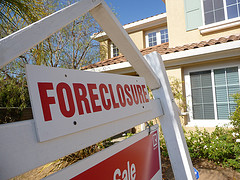Overview
Have you ever tried managing your money by creating a personal budget and sticking to it? Do you find that managing your money works or does it seem like a waste of time? The hardest part about managing your money by creating a personal budget is using information from it to modify your spending habits.
With any household budget when you are trying to manage your money, you should be trying to prevent overspending, not only on the large, more infrequent expenses such as vacations, major repairs, end-of-the-year holidays as well as birthdays, but also on the day-to-day and monthly expenses that you incur throughout the year. Only after you have a handle on what and how you are spending does sticking to a household budget make sense and seem worthwhile. It is important to have control over your expenses, even if money management does seem to be somewhat illusory.
——————–
One recommended approach to managing your money by creating a personal budget is to carefully track your spending during the month and then adjust your budget targets up and down in each category, so that your total expenses never exceed your income.
There are many software programs that can help you create a personal budget to track your expenses, however those programs can only display results based on the information provided by you. It is up to you (and your significant other, if applicable) to designate categories for each type of expense in your household budget.
While those categories in your household budget only need to make sense to you, expenses allocated to those “buckets†should be done consistently so that you can track and compare expenditures over time. It rarely matters what you are overspending on — dining out, entertainment or clothes, for example. What matters more as far as managing your money is knowing where it was spent and how that amount differed from the same time period measured previously, for example, so you determine how and where to best change your spending habits within your household budget.
Whether you would like to buy a new or newer car, put a down payment on a new home, or do a major house renovation project – non-discretionary expenses all of which can run into the tens of thousands of dollars in your household budget, you need to be able to carefully track other costs so that you can build the “rainy day†funds to afford those bigger expenses. And when it is anything other than a one-time non-discretionary expense, tracking costs becomes even more significant so that you stick to the household budget allocated for the project.
Understanding Your Expenses
Tracking expenses is helpful, but managing your money also involves understanding the types of expenses in your budget. Here is a list of some expenses, delineated as fixed, committed or non-discretionary that may impact your household budget. Committed expenses are not required for survival, but they are expenses you commit to for yourself or your family that generally impact your household budget and your quality of life.
Fixed (essential)
Home mortgage or rent
Basic food and clothing needs
Essential household expenses
Basic utility bills
Taxes
Student loans
Committed
Insurance premiums
Charitable contributions
Non-essential utility bills (satellite TV service, internet, phone – land line and cellular)
Health/sports club memberships (for self, and spouse and children, if applicable)
Music lessons (for self, and spouse and children, if applicable)
Sports equipment (for self, and spouse and children, if applicable)
Non-discretionary (optional)
Car purchase
Home purchase
Home renovation
Home repairs
New home appliances
Dining out
Entertainment (e.g., movies, theater, sporting events)
Vacations
Holiday/birthday gifts
Other clothing or consumer goods purchases
Establishing a baseline for what is an acceptable allocation of expenses and keeping a lid on your committed and non-discretionary expenses, compared to your monthly and annual income, will go a long way toward helping you succeed with managing your money by creating and sticking to your household budget. Doing so will also provide you the maneuverability to save for retirement, long-term non-retirement savings, as well as to save for “rainy†day expenses and isolated “fun†expenses that you may not want to track in your household budget.
For a lot of people, part of the difficulty in reducing committed and non-discretionary expenses comes from the need to make big monthly credit card payments. If you’re carrying a substantial amount of non-mortgage debt in your household budget, you should cut up your credit cards and aggressively pay down your debt first before allocating funds for long-term and retirement savings, unless you or your spouse’s employer is contributing a matching amount toward that retirement account. Cutting back on matching funds from your or your spouse’s employer is not a good way to manage your money since it is like leaving free money on the table.
The real secret to creating a personal budget that really works is creating a sustainable structure for your finances, one that balances spending and income and that leaves enough room to handle the unexpected.




![Reblog this post [with Zemanta]](http://img.zemanta.com/reblog_e.png?x-id=6ec1948b-ca4c-4294-9c08-f7fca5110483)

![Reblog this post [with Zemanta]](http://img.zemanta.com/reblog_e.png?x-id=2f7ea46b-28f6-4d4a-8fa4-cfa9f8a7d0c3)



 ll behind in your payments. For a little more detail on putting a hardship letter together see:
ll behind in your payments. For a little more detail on putting a hardship letter together see: ![Reblog this post [with Zemanta]](http://img.zemanta.com/reblog_e.png?x-id=d6fc1165-7dcb-44b5-bb12-6e13244049be)

 If you are behind in your
If you are behind in your ![Reblog this post [with Zemanta]](http://img.zemanta.com/reblog_e.png?x-id=15d77b79-37c1-41e8-9a46-e69563c1a2f7)

 If you’re having trouble keeping up with your mortgage payments, then perhaps a
If you’re having trouble keeping up with your mortgage payments, then perhaps a ![Reblog this post [with Zemanta]](http://img.zemanta.com/reblog_e.png?x-id=ad310290-41ef-49b1-8182-8f754aa7b3d7)

 Credit card offers typically overrun the mailboxes of millions of American consumers. These offers usually make it incredibly easy for those with moderate or even poor credit to obtain a credit card. Sadly, in many cases, poor consumer habits result in maxed out
Credit card offers typically overrun the mailboxes of millions of American consumers. These offers usually make it incredibly easy for those with moderate or even poor credit to obtain a credit card. Sadly, in many cases, poor consumer habits result in maxed out ![Reblog this post [with Zemanta]](http://img.zemanta.com/reblog_e.png?x-id=62b21004-d6f1-4677-8fab-85a2c5d93df4)

 If you are having trouble keeping up with your
If you are having trouble keeping up with your ![Reblog this post [with Zemanta]](http://img.zemanta.com/reblog_e.png?x-id=d6a66d97-d653-4911-bbe0-c273ac12df1a)
